- Home
- Vanessa Curtis
The Earth Is Singing Page 5
The Earth Is Singing Read online
Page 5
I’m not going to get old like that. I will look just the same as I do now, except for a few grey hairs in my long fair plait. I will still be dancing, just like I promised Papa. I will look after Mama when she gets old, because I promised Papa that, too.
But I will never let old age happen to me in that way.
When I have set my mind to something I can be very stubborn.
I have a phrase I use that Papa always used to tease me for: I have decided!
That evening I wait until Mama and Omama have gone to bed.
Then I make myself a hot cup of coffee and pull out Omama’s hidden copy of Tēvija.
Just looking at the thick bold black font that they use for their headlines makes me feel sick in the pit of my stomach, but I can’t seem to stop. I am becoming obsessed with this paper. I tell myself that I need to know what is going on because I promised Papa that I would look after Mama. It makes me feel kind of weary and adult.
I switch on my bedside lamp and hug my knees up towards my chest. I open the copy of Tēvija and sip the black coffee.
The very first line makes me catch my breath.
In thick black text that seems to leap out and hurt my eyes, it says this:
The Jewish sins are gross: they wanted to destroy our nation and, therefore, must perish as a culture.
I close the paper with a shaking hand and get out of bed. I kneel by the bed in the dark and I close my eyes and pray to God.
I ask Him to tell us what our sins are and that He might forgive them so that we don’t have to suffer.
Perish as a culture.
I dissect the words and make them separate again. On their own they mean nothing. I put them together in the wrong order. They still mean nothing.
Culture. As. Perish. A.
A. Culture. Perish. As.
Then I put them back together.
Perish as a culture.
I lie awake for hours with my heart thudding.
The noise of breaking glass and anguished screams goes on for the rest of the night.
Chapter Six
There are new rules for the Jews of Rīga and things are getting worse.
There are not many shops where Jews are allowed to buy food now and there are members of Hitler’s Schutzstaffel soldiers from the Nazi party keeping armed guard on the streets.
Sometimes they open fire on a Jewish man or woman without warning. Mama has seen people lying dead or injured at the side of the road and she’s frightened to let me go outside at all now.
I try not to look at the bodies, because they make me feel sick with fear, but it’s difficult. There are so many.
I feel like I’m going mad stuck inside this apartment with very little fresh air.
I haven’t been anywhere. I so miss my Saturday swimming sessions with Uldis but it’s too risky to leave the apartment.
I’m still reeling from the sentence I read in the paper just over two weeks ago. Since then I have met up only once with Uldis in town after Mama ran into him and he said he was missing me and that he would take me out for a walk in the fresh air.
Mama had taken some convincing, but in the end she agreed after Omama pointed out that I was looking pale. So I walked with my beloved Uldis through the cobbled streets of Vecrīga and I felt safe with him being in his policeman’s uniform.
I took great deep breaths of the balmy summer air and got so dizzy that I had to stop and steady myself on an old building for a second. I had missed being outside, but not as much as I’d missed Uldis.
“It’s good to see you,” I said. The time we had for the walk seemed very short and precious and I wanted to tell him my feelings straight away.
“Sorry,” said Uldis. “I have been busy with my police work. It’s really good to see you too, Hanna.”
Uldis looked around at other people a lot while we were walking. At one point he stared hard at an armoured vehicle where four of those SS men were sitting smoking and watching the people walk by. One of the men stared back at him and made a gesture I couldn’t understand.
“What was that about?” I said. “Are you working for the SS now?”
Uldis laughed.
“Of course not,” he said. “I am not a German. I will look after you, Hanna. That is all that matters.”
I went quiet for a moment. I had put on my prettiest dress for the trip out and I was hurting that Uldis hadn’t noticed the red flowers on the white fabric or the neat belt that Mama had made me to cinch my waist in. For a moment I had a horrid feeling of doubt about our relationship and whether he liked me as much as I liked him.
But by the time Uldis saw me back to the apartment door we were chatting away again, just like we always did. We walked close, pressed up against one another, and the feeling of his hard thigh in the rough uniform was exciting against my own soft leg.
“When will I see you again?” I called after him.
Uldis turned round and gave me his lopsided, bright grin.
“Soon,” he called back. “Take care, Hanna. My regards to your mama and omama.”
Mama comes back from one of her dangerous trips into town to queue for food and she is clutching a rotten lemon and a piece of paper.
“These are pinned up all around town,” she says. “Look.”
With a trembling hand she puts the crumpled piece of paper, still with a pin through its heart, on the table in front of us.
We peer at it in silence.
Regulation One:
Jews are prohibited from visiting public places: swimming pools, parks and all city facilities.
Jews are prohibited from using cinemas, theatres, libraries or museums.
Jews are prohibited from owning trucks, cars or radios.
Women Jews are prohibited from wearing hats or using umbrellas.
Jews are ordered only to use Jewish doctors or dentists.
Jews are entitled to only half the food rations of non-Jews.
Regulation Two:
All Jews must wear on the left breast a six-pointed yellow star which must measure ten centimetres wide. Violation of this regulation is punishable by death.
We stare at one another.
The last line seems so unreal that at first I ignore it.
Punishable by death.
No. It can’t be true.
I push it from my mind and glance instead at the pile of library books I have taken out over the last two weeks. Will I get fined if I am not allowed to enter the library to take them back?
Then I think about those Saturday swims I so enjoy with Uldis. I am banned from using the baths because I am a Jew. He will still be able to go there, but without me. What if he meets another girl there and forgets about me?
I feel sick thinking this, so I get up and move about to break my train of thought.
I look at Mama and wonder how she will be able to walk the streets of Rīga without her hat or umbrella. It is the beginning of the humid, rainy season in Rīga and the water can come down in sheets at times.
I glance at Omama. She is clutching the radio she likes to listen to at night. I think she tries to tune in to folk music to remind her of her youth in Talsi, a tiny village several miles outside Rīga.
Mama breaks the frozen moment. She goes over to her sewing box and gets out a roll of yellow fabric and her pair of large scissors. She gestures to me to find black cotton from her tin of cotton reels and we sit down at the table.
Nobody speaks.
I watch Mama snip the fabric into the shape of a star and hold it against her tape measure.
When she has finished, three perfect yellow Star of David badges sit on the table in front of us.
Omama picks one up.
“We should be proud to wear this,” she says. “It is the star of our faith. They can’t break us down in this way.”
Mama shakes her head and sighs.
“They are trying to mark us out as different,” she says. “And it is working. How will I queue now for food if they see my star?”
“You will have to find shops without queues,” I say. We all know that this is impossible.
Mama gets me to find my school jacket. She sews the star onto the left breast and stands back to admire her handiwork.
“You will always have to wear this jacket outside now,” she says. “Even on a hot day such as this.”
Punishable by death. The unspoken words bounce between us.
I pull a face. I picture myself walking with Uldis and having to ruin my pretty summer dress by wearing this jacket over the top.
Then I think: But where would we go on our date? I can no longer enter a cinema or theatre or even walk with him in the park by the canal.
I feel short of breath. The walls of our apartment seem to be closing in.
Mama sees just in time and gets me to put my head between my knees.
She strokes my hot hair off my sweaty forehead and brings me a drink of water.
When I have stopped feeling dizzy she sews Omama’s star onto a black coat with red stitching around the hem. Then she sews her own star onto the navy coat she wears for best.
Omama goes to bed clutching her radio in defiance. I know full well that she’s going to listen to it all night and turn the volume up extra-loud.
“You must get rid of that,” Mama tells her. “What if one of our neighbours hears it and reports us to the authorities?”
Not all of the residents in our block are Jewish. I have noticed that some people have stopped talking to us if they pass us on the stairs. They rush off like frightened rabbits pursued by a ruthless fox. I want to tell them that it’s the other way around – that we are the frightened ones, pursued by a hostile band of Nazis.
Omama flaps her arms as if to get Mama to go away. She is not frightened. At least, not in the way that Mama and I are. Omama told me last week that she has lived through another World War, eviction from several of her homes and several pogroms where Jews were shot on the streets. She has even survived a five-year expulsion to Russia.
Omama thinks that she is indestructible.
I only hope she’s right.
It seems I no longer have a best friend. Velna has ignored me ever since that day at ballet school and even when I saw her on the street when I came out of the cinema with Uldis, she turned her blonde head away and crossed over to the other side.
It hurts like hell. We used to tell each other everything and now I have nobody to confide my feelings about Uldis to. Mama seems to disapprove of Uldis more than ever and is starting not to be able to hide it but I daren’t ask her why. I suppose it is just because the difference between Jews and non-Jews is getting greater by the day. When she gets that tight-lipped look it is very difficult to say anything to her at all. Omama likes Uldis and will talk to me about him but she sees him as just a young boy.
The apartment starts to close in on me even more.
Our villa was large and spacious, but this tiny flat is lacking in air and the small amount that is left seems to be soaked into the fabric of the chairs, curtains and carpets.
Because we no longer have quite enough to fill our stomachs I spend a lot of time with a strange aching sick feeling in my guts which doesn’t help. I can’t seem to sleep properly without a full stomach.
I pace up and down, peering out of the window until Mama puts down her work, takes off her spectacles and gives me an appraising look.
Omama retreats into her bedroom, still clutching the illegal radio.
“All right, you win,” Mama says. “You can take these alterations back to Mrs Kronis. Just make sure your star is visible at all times and stay away from the soldiers. Don’t stop to talk to anyone. Come straight back. Okay?”
“Yes, yes,” I say. I’ve already got my jacket on and am standing by the door with my arms full of dresses and skirts.
“If you see a shop with no queue, try to get us some bread,” says Mama. “I realize that this is about as likely as the war finishing this afternoon, but still, you could try.”
I’m halfway down the stairs.
I walk through the burned-out streets of the city I love.
There is a feeling of mistrust and worry in the air. People huddle along with their heads kept low. They no longer stop to admire the art nouveau buildings with their carved heads and cats or browse through the street markets.
On every street corner there is a patrol, some with cars where Hitler’s SS soldiers sit and watch the population go by. Omama refers to them as “those Nazi bastards”, and tends to spit whenever she mentions them. Latvian policemen stride up and down the pavements with their guns hoisted high and no time for the neighbours they used to socialize with.
I try to imagine Uldis, grim and unsmiling, with a gun, and it doesn’t seem possible.
My heart gives a little jump when I think I see him, except it’s another Latvian policeman with similarly chiselled cheekbones and fair hair.
I am heading to the home of Maya Kronis. She is a friend of Mama’s who lives on the other side of the old town. Her sight is failing and she cannot see to thread a needle, so Mama does all her mending at a reduced rate.
I hurry past the Doma laukums, our grand cathedral. So far it has escaped the bombing and fire. I pass the Trīs brāļi, three houses which stand together but are all from different centuries. I knock on Mrs Kronis’s door on Klostera iela. Mrs Kronis still lives in her own house. I feel envious of her three floors and pretty backyard.
“Hanna,” she says, opening her front door only wide enough to put her nose through it. “How kind of you to come across town with my clothes. Please send my best wishes to your mother. You will understand if I don’t ask you in today?”
“Oh,” I say. “Yes.”
I’m a little disappointed and thirsty, having crossed town in the sticky heat of July in a black jacket.
Mrs Kronis opens the door just wide enough to grab her clothes and then shuts it with an apologetic shrug.
I walk back through town at a snail’s pace. Because I am out of breath, hot and tired, I notice more on the way back than I did on the way there.
Several people stare at me in an odd way. Others cross to the other side of the road, pulling their clothes around themselves as if I am a virus that might penetrate through to their skin.
Some of these people are classmates from my ballet school or friends of Mama’s from way back when we lived in the villa.
I see Velna’s mother hurrying along across the street with a shopping basket and so I call out “Hello!” and give her a wave, as she has always been very kind to me whenever I visited Velna after school for tea.
Velna’s mother gives a little jump and hugs her basket to her chest as if I’m about to run over and grab it from her. She stops for a moment and half opens her mouth. Then she lowers her head and rushes on without looking back.
My heart aches with shock and sadness.
I look down at the star on my left breast. It is very yellow against the black of my jacket. I feel as if I might be glowing. Squinting down at it gives me an ice-cream headache and a pain in the back of my neck so I stop.
I feel different. I feel as if Rīga is no longer my place of birth.
It is my city, but it is as if I’ve come down from another planet. Familiar buildings look strange. My feet echo on the pavement with a hollow snapping sound that I have never noticed before.
There are other Jews wearing stars.
I try to catch their eye and smile as I pass them but very few people react and, if they do, it’s with a guilty half-smile as if they’ve been caught doing something they shouldn’t have.
Omama told me to wear the star with pride because it is a symbol of our faith, but I don’t feel proud.
I just feel embarrassed.
When I get home to the apartment I rip the jacket off and burst into tears.
“I don’t want to be Jewish,” I say, lying face down on my bed with Mama perching on the edge. “I want to be like Papa. I am going to be Latvian and not Jewish from
now on. I will not wear the star. I look Latvian. I could get away with it.”
Mama looks as if she is considering something. Then she shakes herself, as if trying to get out of a trance, and pulls me into a sitting position and holds my hands. I notice the pale skin around her knuckles and the way that her gold wedding band is swivelling around her finger. It is getting loose.
“Oh, Hanna,” she says. “I am afraid that as far as Jewish law goes, you are considered to be Jewish if your mother is. You must never go out without your star now.”
“Is that what Hitler thinks too?” I say. “Because I have Papa’s blood in me too, remember?”
We are both silent for a moment. I can see Mama wrestling with painful images of Papa, just like I am. I can see him grinning at me over breakfast and ruffling my hair. Sometimes at night I almost feel him sitting by my bed, watching me sleep.
“I’m sorry,” says Mama. “I’m sorry you have to be Jewish at this terrible time. There is nothing I can do to alter that fact. It is who you are.”
She takes me into the kitchen to make me a warm drink.
“Oh,” she says, stirring a cup of hot chocolate. “The money from Mrs Kronis – could you put it in my tin?”
I start in horror. With the strangeness of everything in town I quite forgot to ask Mrs Kronis for the mending money.
Mama sees my face and sighs.
“Never mind,” she says. “These are strange times. Easy to forget what normal is, yes?”
I can’t help noticing when she opens the cupboard to put the tin of hot chocolate away that there are lots of gaps where there used to be packets and boxes of food.
“Are we going to run out of food, Mama?” I say.
My question coincides with the arrival of Omama fresh from her afternoon nap.
“Run out of food?” she says, slapping my arm. “Run out of food? Not while I’ve got breath in my old body, girl!”
She disappears off back into her bedroom and then emerges with a slim box of biscuits which she proceeds to arrange in patterns on a plate with great deliberation and much muttering.

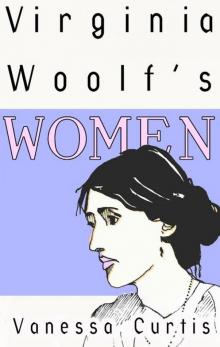 Virginia Woolf's Women
Virginia Woolf's Women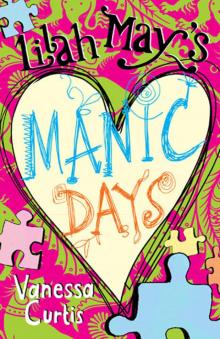 Lilah May's Manic Days
Lilah May's Manic Days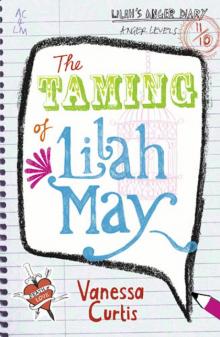 The Taming of Lilah May
The Taming of Lilah May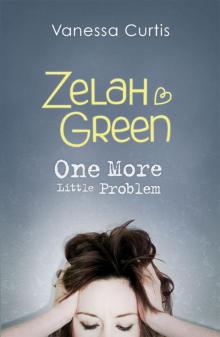 One More Little Problem
One More Little Problem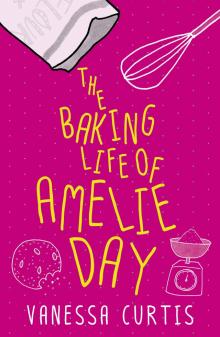 The Baking Life of Amelie Day
The Baking Life of Amelie Day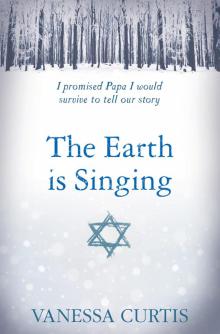 The Earth Is Singing
The Earth Is Singing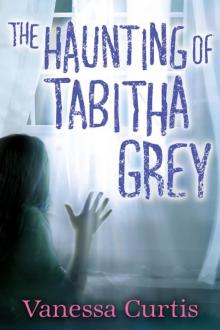 The Haunting of Tabitha Grey
The Haunting of Tabitha Grey